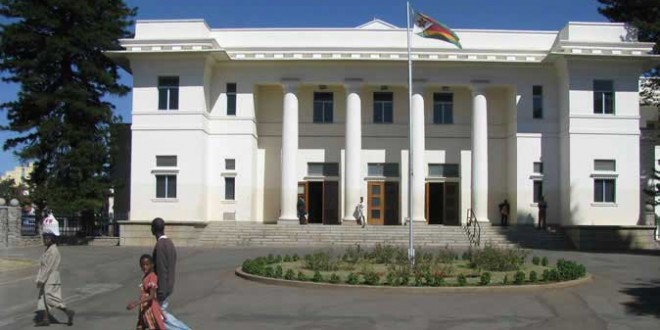
THE Bulawayo City Council will not increase tariffs and rates in the 2014 budget because it has taken cognisance of the economic plight faced by residents, especially given the high unemployment in the city.
Innocent Kurwa Own Correspondent
This emerged during the second round of budget consultations councillors held with residents in all the council’s 29 wards during the past weekend.
At one such meeting in Waterford suburb on Sunday, the council’s chamber secretary Sikhangele Zhou, who led a team of six council officials, said council acknowledged that people were facing severe economic hardships and, as a result, would not be able to take any increases in rates and tariffs.
She said the MDC-T-dominated local authority had decided to reduce by $10 million the 2013 budget to arrive at a $113 million budget for 2014. Zhou said council had also made people aware of the meetings through e-mails, messages on water and rates bills as well as smses.
“Businesses are struggling and companies and businesses are closing down,” she said.
“This means there will be no collections from business in the forthcoming budget year and your council, therefore, found it prudent to reduce by $10 million the budget for 2014 against the $123 million for 2013.”
Zhou said council was pro-poor and, as a result, was helping residents by setting up several vending facilities.
- Chamisa under fire over US$120K donation
- Mavhunga puts DeMbare into Chibuku quarterfinals
- Pension funds bet on Cabora Bassa oilfields
- Councils defy govt fire tender directive
Keep Reading
“While we appreciate people are poor and we as council are pro-poor we must nevertheless protect ratepayers, otherwise their own decline further worsens the economic downturn in the business,” she said.
“Allowing vendors to vend at established businesses like OK also drives such businesses out of the central business district, to suburban shopping malls, further depriving the council of much-needed revenue in rates.”
Residents at the meeting commended the council for not increasing rates and tariffs in the 2014 budget.
But they also raised a number of issues they wanted attended to, among them the problem of vendors and religious congregations that operate and worship at places which do not have ablution facilities, riverbank and illegal cultivation, domestic animals, especially cattle, that roam suburbs untended, poor street lighting and deteriorating roads.
An official from the Engineering Services Department said roads now belonged to the Zimbabwe National Road Authority (Zinara).
“At the moment Zinara has prioritised rural councils in their allocation of funds,” the official said.
“We have received a machine to repair roads, but it suffers constant breakdowns and is not adequate given our size.
“However, we try our best and we continue to attend to pot holes,” he said, adding that work on repairing streetlights was ongoing with priority being given to the main access roads like Leopold Takawira/Gwanda Road.
Zhou said council would continue to destroy crops grown on undesignated land as well as ticketing those engaging in riverbank cultivation.










